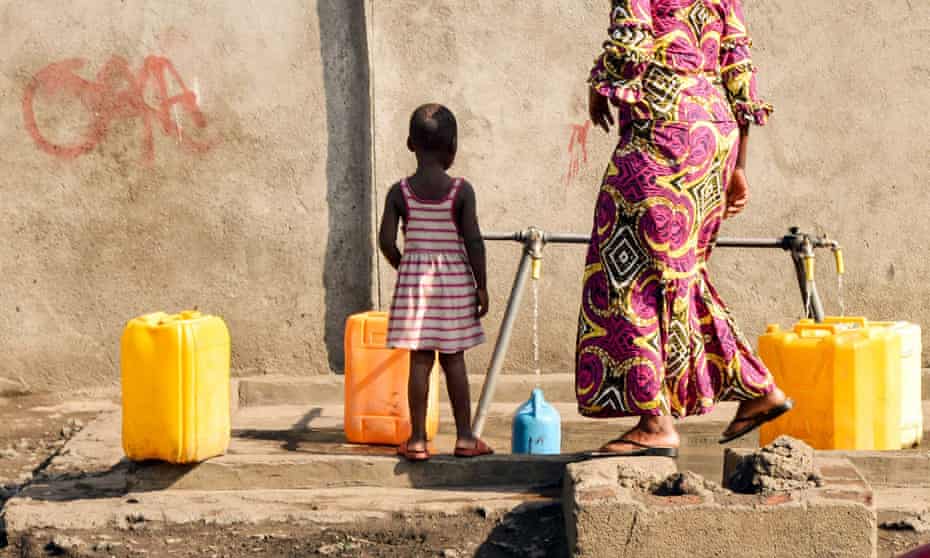CFSF, PSI, Others Canvass Recourse To Remunicipalization As Utilities, Water Privatization Fail Globally

By Edu Abade
With several established cases of failed privatization of public water assets and other utilities like electricity and transportation services, policy makers and governments across the world now lack the moral strength to continue to pursue and foist World Bank and International Monetary Fund’s (IMF) privatization models on their countries.
Following the failures of such privatization exercises in the United States of America, France, United Kingdom, the Netherlands and other countries including African nations, it is now safest to seek recourse to remunicipalization (return of privatized entities to government or public control) with adequate funding from taxpayers money.
This was the submission of participants at a virtual training organized for journalists and activists by the Citizens Free Service Forum (CFSF) in collaboration with the Public Service International (PSI) and other partners with the theme: Reporting Climate Change and the Water Sector on Tuesday, September 17, 2024.
In his presentation titled: Privatization Failures and the Growing Recourse to Remunicipalization, Deputy General Secretary of PSI, David Boys, argued that privatization, which largely entails the sale of assets to private individuals, investors or firms, remains an abdication of responsibility on the part of governments.
He maintained that governments’ efforts to privatize public assets and utilities were aimed at avoiding the costs of borrowing and spending to fund public facilities earlier established to provide essential services to citizens at affordable rates compared to provision of such services by private investors, who usually place profits above the people’s welfare and consumer satisfaction.
Boys maintained that remunicipalization remains a legitimate means of regaining public assets with a view to providing access to potable water and other essential services anywhere in the world, adding: “To achieve that, there must be conscious efforts by the people and governments to strengthen public services and democratic institutions globally.”
Citing failed privatization exercises like those of Metito, Veola and Abengoa in France and other places, he pointed out that PSI has been pushing for provision of public utilities since 1907 in 160 countries, insisting that remunicipalization is now the only viable option since the privatization of public assets, especially in the water sector has failed in many countries, including the United Kingdom.
In his opening remarks, Executive Director of Citizens Free Service Forum (CFSF), Comrade Sani Baba, said the group conceived the training in the realization that Nigeria, like most African countries and countries of the Global South carry the biggest burdens of the climate change impacts and empower journalists to report the issues from informed perspectives.
“We deliberately linked the climate crisis to water stress because this issue is often overlooked in the climate discourse in Nigeria. The situation in coastal communities facing inundation is dire and the deforestation issue alarming, but the mother of all crises, is one that affects water that we all consume and depend on for survival.
“We are all witnesses to the downward march of the Sahara, which has led to scramble for the few available areas where water is available. The Lake Chad, which was over 25,000 square kilometers in the 1960s, is now less than 1,500 square kilometers as we speak and it is still shrinking. Along with this disaster is the migration of locals and pastoralists who depend on the lake to other regions along with its fallouts in form of land owner-settler crisis,” he stated.
Sani pointed out that the floods that have ravaged Maiduguri, the Borno State capital and now spreading to other parts of the country will leave behind a trail of further stress on water because the flood waters have polluted the few available wells and other sources of water that people depend on.
He said: “Disaster capitalists in the water industry will capitalize on these developments to promote and foist water privatization on our government to further impoverish our people as only those who have the means will have access to water.”
Also in his presentation titled: Introduction to Climate Reporting: Key Issues and Concepts, Executive Director of Renevlyn Development Initiative (RDI), Philip Jakpor, maintained that the extractive activities of multinational fossil fuel companies like Shell, Chevron, Eni, Exxon Mobil, BP and TotalEnergies, among others, were responsible for the escalating climate crisis worldwide.
He also listed the International Emission Trading Association (IETA) and Agro industrial plantation companies like Wilmar International Limited, IOI Group, Agropalma and the Roundtable on Sustainable Palm Oil (RSPO) as the other contributors to the climate and water stalemate.
Beneficiaries of the system, he said, include the fossil fuels industry, private water industry, pharmaceutical companies, multinational agribusiness corporations and disaster capitalists.
He explained that women, children, indigenous peoples, frontline communities, workers, wild life, countries of the Global South, especially Africa, remain the most impacted by climate and water crises globally.
Jakpor, therefore, urged journalists to be mindful of the fact that reports criticizing the current industrial models must be in tandem with recommended and proven solutions, expose drivers of the climate and water stress, as well as muster civil society and frontline communities to take their destinies in their hands by demanding climate justice.
“Such reports must urge policy makers to make just and climate-friendly laws and charge delegates to future climate change talks to uphold their people’s demands,” he said.











